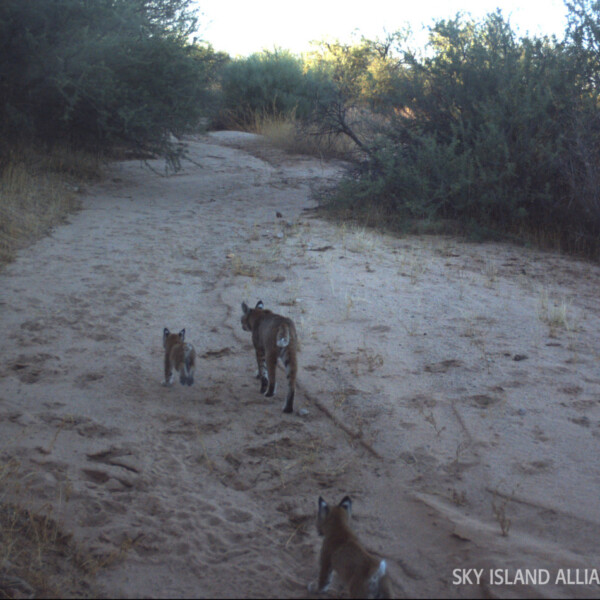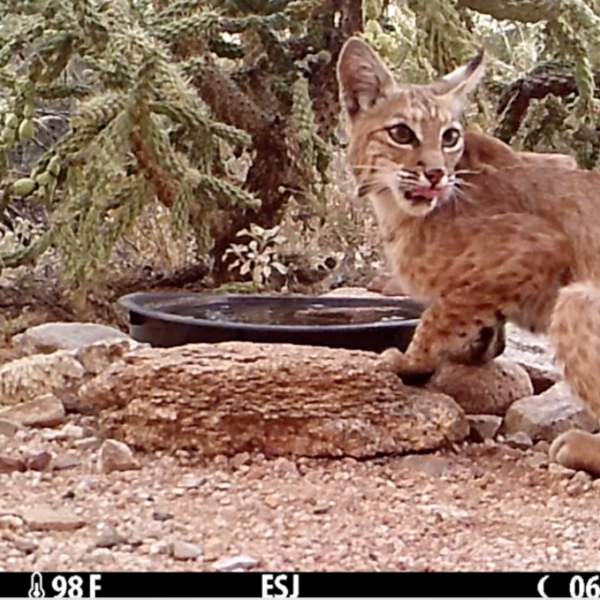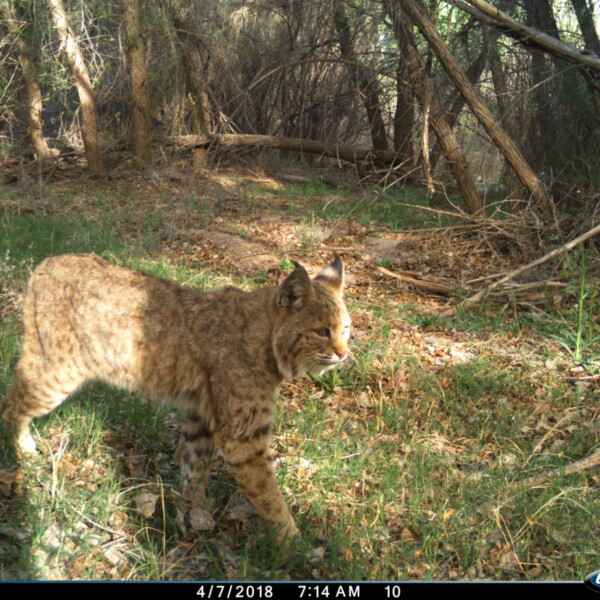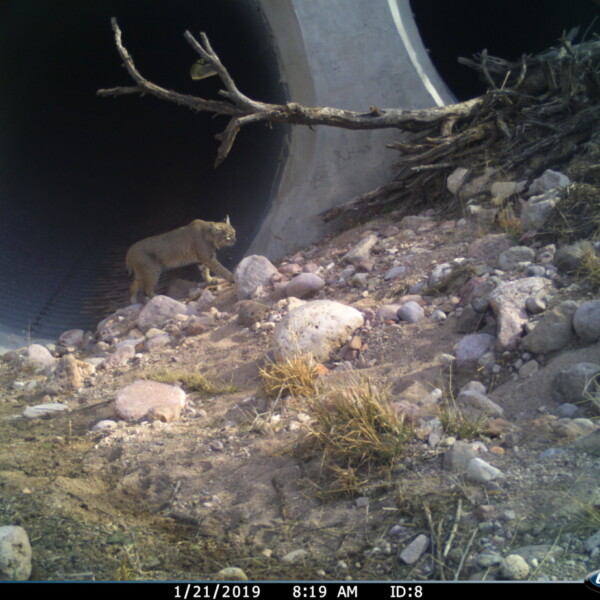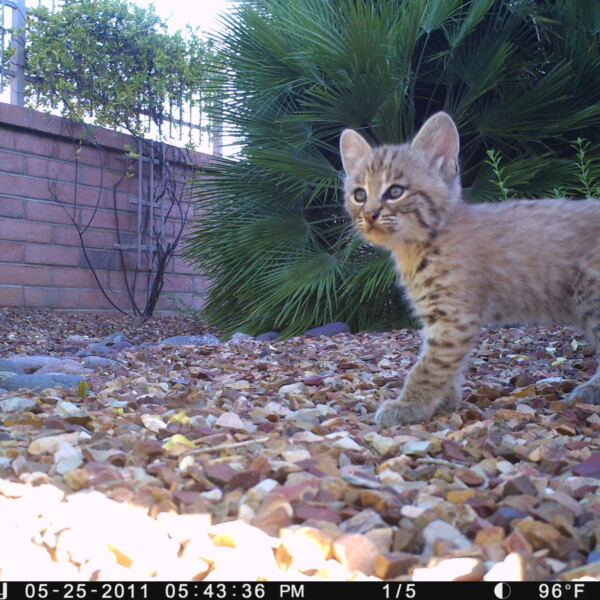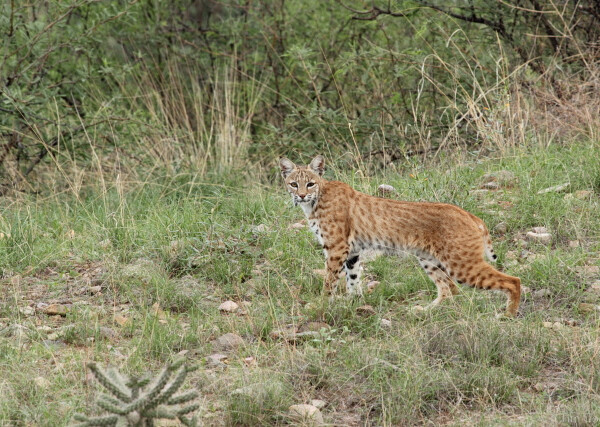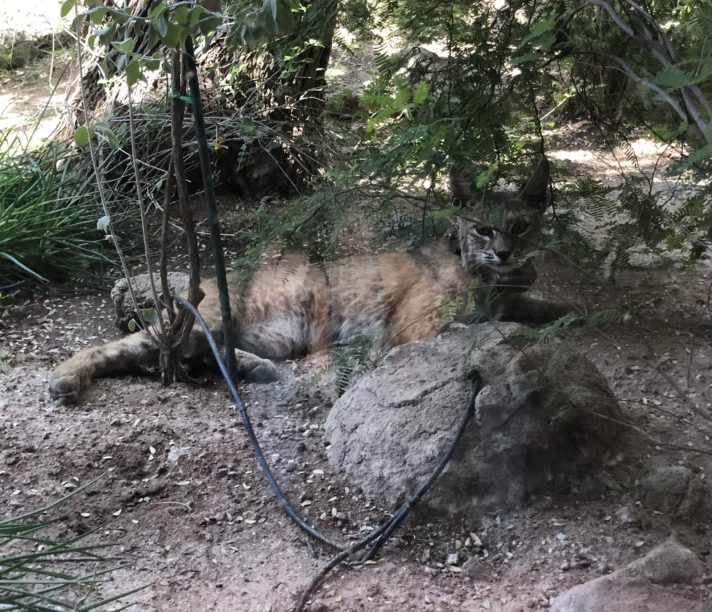
Photo Credit: Michael Baldwin
Please enjoy this blog submitted by Kerry Baldwin from Bobcats in Tucson. Some of the original blog copy was altered by Sky Island Alliance for simplified reading.
A basic truth in wildlife management is this: wildlife is a product of its habitat.
Habitat is the dynamic interaction of an animal’s food, water, shelter, and space needs, arranged in such a way where the species can freely use the components. How a species selects and uses habitat is, then, an important baseline for beginning to understand how, where, and how easily an animal makes its living.
Exploring this window into Tucson’s urban bobcats is what the Bobcats in Tucson (BIT) project is all about.
Bobcats in Tucson is a study of the bobcats that live along the urban / wildlands interface on Tucson’s west side. Our project objectives include learning more about where they hunt and rest; where they give birth and raise kittens; and how they move through the urban and undeveloped spaces within their home ranges.
We are only seven months into a three-year study, and the bobcats we’ve monitored are already sharing lots of information. Sixteen bobcats have been captured—and nine of these, five females and four males, have been fitted with a low impact satellite collar. These collars come off in 18-24 months (usually as their batteries run down), and we can send a signal to the collar at any time and drop the collar if best for the bobcat.
Since we started tracking the first bobcat of this study in November 2020, we have documented over 3,000 locations of bobcat. We currently get two locations a day on the males and four locations on the females since they are in kitten mode. We think four of the five females have had kittens now, and we’ve tracked them back to den sites. We hope to be able to increase daily locations in 2022 if we can secure additional funding for more collars.
Our study results indicate that the habitat our collared bobcats use is pretty good. This comes with a generalized home range size analysis. We have one female with a range of just half a square mile and a male who uses over 13 square miles up by Sweetwater Preserve; he is the local player.
BC# 1-Shannan, the first bobcat of the study, has the largest home range of our collared females so far at around four square miles. Just prior to the current two-week window, she had move over 50 kilometers … but now has settled down to well below 22 kilometers. We believe she has kittens now and think we have narrowed the site down to … an area she had previously visited.
The bobcats have been moving back and forth between areas of high urban density … to wildlands with no structures. We are seeing a new trend, too: people are reporting fewer bobcats in the more urban core of Tucson in central and south Tucson; yet we are getting lots of reports from the north and east side of town along the river corridors.
The Bobcats in Tucson team will continue to monitor these bobcats. Bobcats are a special wildlife species—they are one of the only spotted cats globally that is not endangered within its range. Bobcats deserve our attention, and we should look at ways to maintain a sustainable co-existence. Seeing bobcats is a special treat for the vast majority of residents in Tucson; it is an urban wildlife gift worth celebrating.
Please help the project by reporting bobcat sightings at bobcatsintucson.net (it’s really easy to do!) and if you can, consider helping gather funds for more collars for this fall. As an entirely volunteer-run project, we need external support to stay responsive to the opportunity we have to advocate for and work with these bobcats.
The Bobcats in Tucson project is primarily funded through a grant from the Arizona Game and Fish Department’s Heritage Urban Wildlife Fund: Lottery Dollars Working for Wildlife. The study is being conducted in association with the Southwest Wildlife Conservation Center up in Scottsdale.
Want to learn more about Bobcats in Tucson? Join our 9:30 a.m. June 24 Coffee Break!

